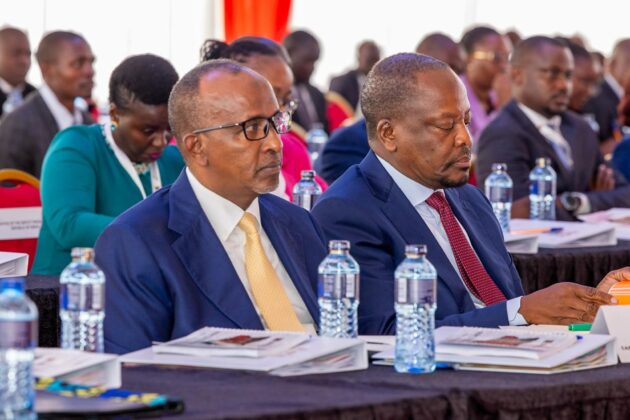
Taifa Care Surges Past NHIF With 24 million people Enrolled » Capital News
NAIROBI, Kenya, Jun 24 – The government’s push for universal healthcare under the Taifa Care programme has now registered over 23.9 million Kenyans.
This is according to resolutions adopted during the 27th Intergovernmental Budget and Economic Council (IBEC) meeting chaired by Deputy President Kithure Kindiki.
The Council lauded the Ministry of Health and the Council of Governors (COG) for their joint effort in rolling out the new health coverage model, which replaces the defunct National Health Insurance Fund (NHIF).
“THAT the IBEC noted the remarkable registration of over 23.9 million Kenyans onto Taifa Care, up from approximately 9 million members in the defunct NHIF, and commended the Ministry of Health and the Council of Governors (COG) for their coordinated and collaborated efforts,” the resolution read in part.
The meeting directed the Ministry of Health, COG, and National Treasury, working with the Social Health Authority (SHA), to immediately finalize a mechanism that ensures all Ministries, Departments, Agencies, and County Governments (MDACs) remit contributions to the Social Health Insurance Fund (SHIF) on time.
At the same time,the National Treasury pledged to release the outstanding Ksh 30.83 billion in equitable share to county governments by Friday, June 27, bringing the total disbursed to counties for the 2024/25 financial year to Ksh 418.1 billion, or 100 percent of the budgeted allocation.
The Treasury will also disburse funds appropriated through the County Government Additional Allocations Act (CGAAA) within the same period.
“THAT in order to facilitate the absorption of the disbursed funds by County Governments, the National Treasury and the Controller of Budget takes all necessary administrative effort to facilitate County Government expedited access and utilization of funds transferred thereto,” the resolution read.
To avoid future delays in conditional fund flows, IBEC directed the Treasury to convene multi-agency consultations within a month to explore alternative legislative and administrative frameworks that would ensure more efficient disbursement of such allocations.
Meanwhile, the Council approved a County Governments Pending Bills Action Plan and instructed each county to adopt customized frameworks modeled on proven best practices.
In addition to health and fiscal matters, the Council resolved to fast-track the development of County Aggregated Industrial Parks (CAIPs) by finalizing critical enabler services and linkages for 13 pilot counties.
The Treasury was asked to expedite the release of Ksh 970 million in pending funds for this project, while the Ministry of Industry was directed to conclude criteria for a second cohort of 21 new CAIPs under a performance-based model.
Also on the Council’s agenda was land and devolution. The Intergovernmental Relations Technical Committee (IGRTC) was instructed to work with the Ministry of Lands to issue reservation orders on public land by June 30, 2025, to safeguard assets during the ongoing transfer process to county governments.
Further, the IGRTC will conclude the costing of devolved functions outlined in Gazette Notice No. 219 of 2024 by July 30, to inform future resource allocations.
IBEC also adopted a resolution to standardize revenue collection guidelines across counties and called for a national Agricultural Summit in late August to focus on extension services, donor coordination, and innovation in the sector.